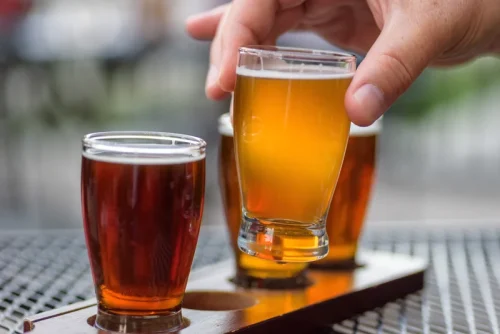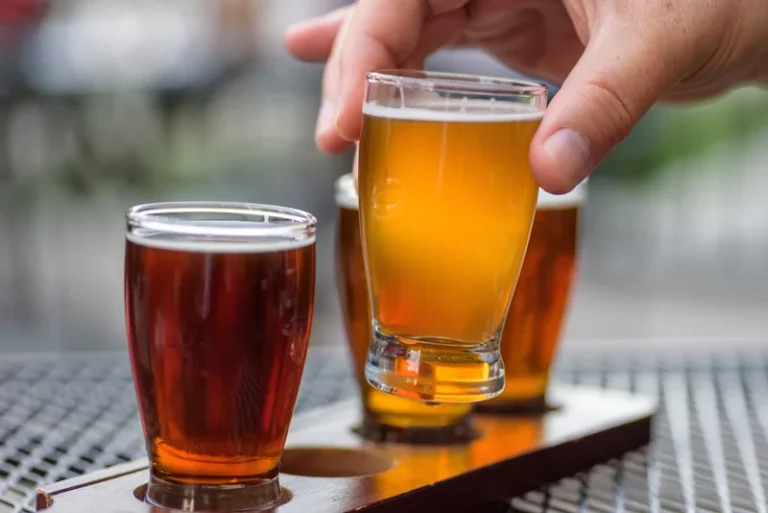
Since alcohol causes you to urinate more often than usual and dehydrates you, heavy drinking can increase your chances of developing a kidney stone and lead to kidney pain. Regular excessive drinking doubles the risk of chronic kidney disease, which doesn’t disappear over time. Even higher risks of kidney problems have been found in heavy drinkers who also smoke. Your kidneys filter waste products from your blood and help control your blood pressure, electrolyte balance, and red blood cell production. There are numerous causes of kidney failure, ways to effectively treat it, and measures you can take to prevent it. A kidney infection can come about due to a number of causes, including bacteria that enters through the urethra and bladder, and then moves up to one (or both) kidneys.
- Despite its popularity as a recreational drug, alcohol is a potent toxin.
- Having kidney stones heightens your risk of developing hydronephrosis.
- Chronic kidney disease can lead to kidney failure, which, like liver failure, can sometimes only be reversed by organ transplantation.
- It is typically felt in your lower back area on one side of your spine and can radiate into the lower abdomen or groin.
When to contact a doctor
Please note, this is only a quote of benefits and/or authorization. We cannot guarantee payment or verification eligibility as conveyed by your health insurance provider will be accurate and complete. Payment of benefits are subject to all terms, alcohol kidney pain conditions, limitations, and exclusions of the member’s contract at time of service. Just as the symptoms and causes of kidney pain vary among individuals, complications from kidney pain will differ depending on the underlying causes.
- Addiction Resource is not a healthcare provider, nor does it claim to offer sound medical advice to anyone.
- While it’s not directly related to the kidneys, you may feel pain in the upper abdomen, which may seem like kidney pain.
- When we talk about the effects of alcohol on our health, our kidneys often take a backseat in the conversation.
- Other kidney problems, such as kidney stones or infection, can also increase the risk of UPJ.
- Moderate alcohol consumption should not cause kidney pain, but various factors may lead to kidney pain after a high intake.
What causes kidney pain after drinking alcohol?
Recognising symptoms early and seeking medical advice can prevent irreversible kidney damage. Chronic alcohol use interconnects with liver damage, elevating kidney disease risks. Alcohol disrupts kidney function, alters blood pressure, and induces dehydration, fostering kidney stone formation. Traveling to one or both kidneys, it starts in the bladder or urethra. Renal function is compromised in cases of liver disease due to altered blood supply to the kidneys.
Causes of Kidney Pain After Alcohol Consumption
This could be caused by kidney stones, and may present with flank pain or an inability to urinate. If you suspect you have kidney stones, increase your water consumption and consult with a medical professional for assistance and possible medication to help break them up. Alcohol can also damage your kidneys by causing high blood pressure (hypertension). This happens because alcohol leads to a higher volume of the hormone renin in your blog. That makes your heart need to work harder to pump blood through your body.

However, drinking alcohol everyday causes harm to an individual’s health. Even it worsens the condition of kidney problem and can cause kidney pain as well as kidney failure. Some people may experience pain from their kidneys after drinking.

AddictionResource aims to present the most accurate, trustworthy, and up-to-date medical content to our readers. Our team does their best for our readers to help them stay informed about vital healthcare decisions. Kidney pain symptoms include lower back pain, fever, chills, and more. Immediate consultation with a doctor is crucial if you notice sharp pain under the rib, indicating potential kidney problems. Ark Behavioral Health offers 100% confidential substance abuse assessment and treatment placement tailored to your individual needs. Kidney stones are small hard deposits of minerals that form in the kidney.
Dehydration is a common culprit, but sometimes underlying issues are at play. In contrast, a 55-year-old female patient, Ms. Smith, presented with a history of chronic fatigue, edema (swelling), and hypertension (high blood pressure) for several years. She had a long history of heavy alcohol consumption, averaging 5-7 drinks daily for over two decades.
Does alcohol cause kidney stones?
- One of these jobs is keeping the right amount of water in your body.
- This condition impedes the proper functioning of the kidneys and bladder.
- Understanding why you’re experiencing discomfort is essential, as it may signify something serious.
- These conditions may require antibiotics or other treatments.
- Binge drinking (usually more than four to five drinks within two hours) can raise a person’s blood alcohol to dangerous levels.
- Some people may experience pain from their kidneys after drinking.
The men were found to have high levels of a protein called albuminuria in their urine, which is indicative of kidney failure. A high alcohol intake may also increase the risk of other problems that can hurt the kidneys, such as a urinary tract infection, high blood pressure, and long-term kidney damage. Avoid binge drinking, and drink plenty of water if drinking alcohol. People with chronic kidney disease should not drink alcohol at all, and they can speak to a doctor for help with quitting if they are finding it https://ecosoberhouse.com/ challenging.
Can You Reverse the Effects of Drinking on Your Kidneys?

Chronic drinkers have a higher risk of hypertension and liver disease. Both of these conditions can further exacerbate kidney damage. Sober living house If you believe that you or someone you know is at risk of kidney failure and are experiencing these symptoms, seek immediate medical attention.
